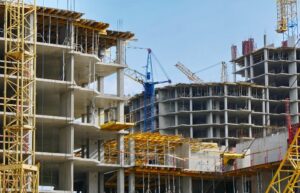The criminal element in the ongoing construction mafia phenomenon that has held South Africa to ransom are real and serious, but greater cognisance should be taken of the perception that ongoing industry practices are economically excluding previously marginalized enterprises in major projects.
This is according to Shawn Theunissen founder of Property Point, the leading business accelerator in the property and construction sector and which conducts extensive community engagement in disenfranchised regions. Theunissen was speaking following media reports indicating that South African businesses, government departments, and state-owned companies are under siege from gangs of extortionists parading as local business forums that are increasingly threatening billions of rands in infrastructure investments and major projects. “The standard practice is that the professional team and principal contractor control both the list of companies who are invited to tender as well as the appointment of their domestic subcontractors. They therefore have control on who is being appointed and based on what is seen in the market one can question the level of unconscious bias in the decision-making process,” he said. He points out that where there has been engagement between communities and project owners, the mafia phenomenon has been mitigated. Of the projects which Property Point has facilitated between project owners and communities across Gauteng and KwaZulu-Natal, Property Point has experienced no incidents of community unrest. “The success of the integration between communities and developers speaks volumes to how inclusion can solve this crisis. To this end we need to support homegrown black companies that will be able to grow in skill and capacity to execute on large-scale projects,” he noted. “Property Point has been able to support businesses over a 15-year period and now has alumni companies who are real success stories in the property industry. These efforts need to be multiplied and done so quickly in order to address the serious challenges facing the slow pace of local economic development which leads to civil unrest.”Theunissen said the criminality could be addressed by introducing governance systems that facilitate fair and equal access to sub-contracting opportunities; formalizing community groups; developing their skills and empowering them to execute these projects in a meaningful way.
“This was the intention of Black Economic Empowerment, but it has clearly failed. Construction companies have shown that they can easily achieve a great BEE score but have either sought out individual enrichment through BEE shareholders or have set up broad-based structures that have not really benefited the communities.” “Have we done enough over the past 26 years to develop enough transformed companies that can execute of these projects? The answer is no. Many of these main contractors that have been appointed are not truly transformed from an ownership perspective and no one is addressing that question,” he noted. He warned that transformation in the construction industry should no longer be left in the hands of principal contractors and professional team members. According to the Construction Industry Development Board, more than 70% of large construction projects are still awarded to white-owned companies, who subsequently have a major say on who becomes subcontractors to these projects. “The lack of transformation has created an enabling environment for the construction mafia. These groups thrive in an environment where there are no clear inclusivity processes regarding the appointment of subcontractors. It is an opportune moment to have a dialogue with the construction companies that are dominant in the country,” Theunissen concluded.






